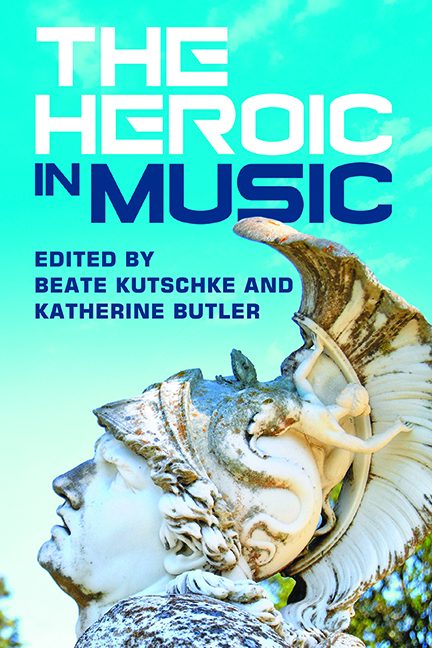Book contents
- Frontmatter
- Contents
- List of Illustrations
- Notes on Contributors
- Introduction
- Part I The Configuration of Heroic Music as a Tool for Shaping Moral and Political Identity
- Part II Music, its Ethics and Politics – Beyond ‘Beethoven Hero’
- Part III Heroic Music and its Moralities in Dictatorships and Post-Heroic Democracies
- Bibliography
- Index
2 - The Heroic in Music and the Musicality of the Hero in Late Sixteenth-Century England
Published online by Cambridge University Press: 16 July 2022
- Frontmatter
- Contents
- List of Illustrations
- Notes on Contributors
- Introduction
- Part I The Configuration of Heroic Music as a Tool for Shaping Moral and Political Identity
- Part II Music, its Ethics and Politics – Beyond ‘Beethoven Hero’
- Part III Heroic Music and its Moralities in Dictatorships and Post-Heroic Democracies
- Bibliography
- Index
Summary
Music and the Heroic
As a period of exploration and discovery in which noblemen aspired to military glory on the tiltyard or battlefield, classical heroes were models to be imitated, and poets such as Spenser and Tasso wrote epic poems of enduring reputation, the Renaissance has a claim to being a heroic age. In England, Sir Philip Sidney was regarded by his contemporaries as something of a Renaissance hero. Combining prowess in arms and letters he encapsulated the breadth of heroic endeavour in Renaissance thought. He was considered a heroic knight who died a martyr's death fighting for the Protestant cause in the Netherlands. He was also a poet, the author of the Arcadia (a blending of the genres of pastoral and medieval romance), and a lover of music who wrote lyrics to popular tunes. After his death he was praised a ‘Well lettred Warriour’ and his ‘heroic sprite’ was regularly listed among his qualities. For George Whetstone, ‘He was the muses joy, he was Bellonas sheilde’ (Bellona being the Roman God of War), while Barnabe Barnes praised him as one who ‘singeth in heaven crowned both with martiall and civill girlands’.
In his Apologie for Poetrie (published posthumously in 1595), Sidney provides an insight into how his musico-poetic and martial qualities were not opposites, but rather interdependent. He stressed the power of songs to inspire him, claiming: ‘I never heard the olde song of Percy and Duglas, that I found not my heart mooved more then with a Trumpet: and yet is it sung but by some blinde Crouder, with no rougher voyce, then rude stile.’ The story of Percy and Douglas, also known as the ballad of Chevy Chase, probably originated in the fifteenth century and told the tale of a hunt led by Henry Percy, Earl of Northumberland, into Scottish territory, which ended in a bloody battle with James, Earl of Douglas. It is thought to be based on the Battle of Otterburn in 1388, though the places, personages, and events have become confused and may combine parts of several different border skirmishes. It is a song of battle, courage, noble deeds, and heroic deaths fit to inspire a nobleman to his own honourable actions.
- Type
- Chapter
- Information
- The Heroic in Music , pp. 32 - 49Publisher: Boydell & BrewerPrint publication year: 2022



